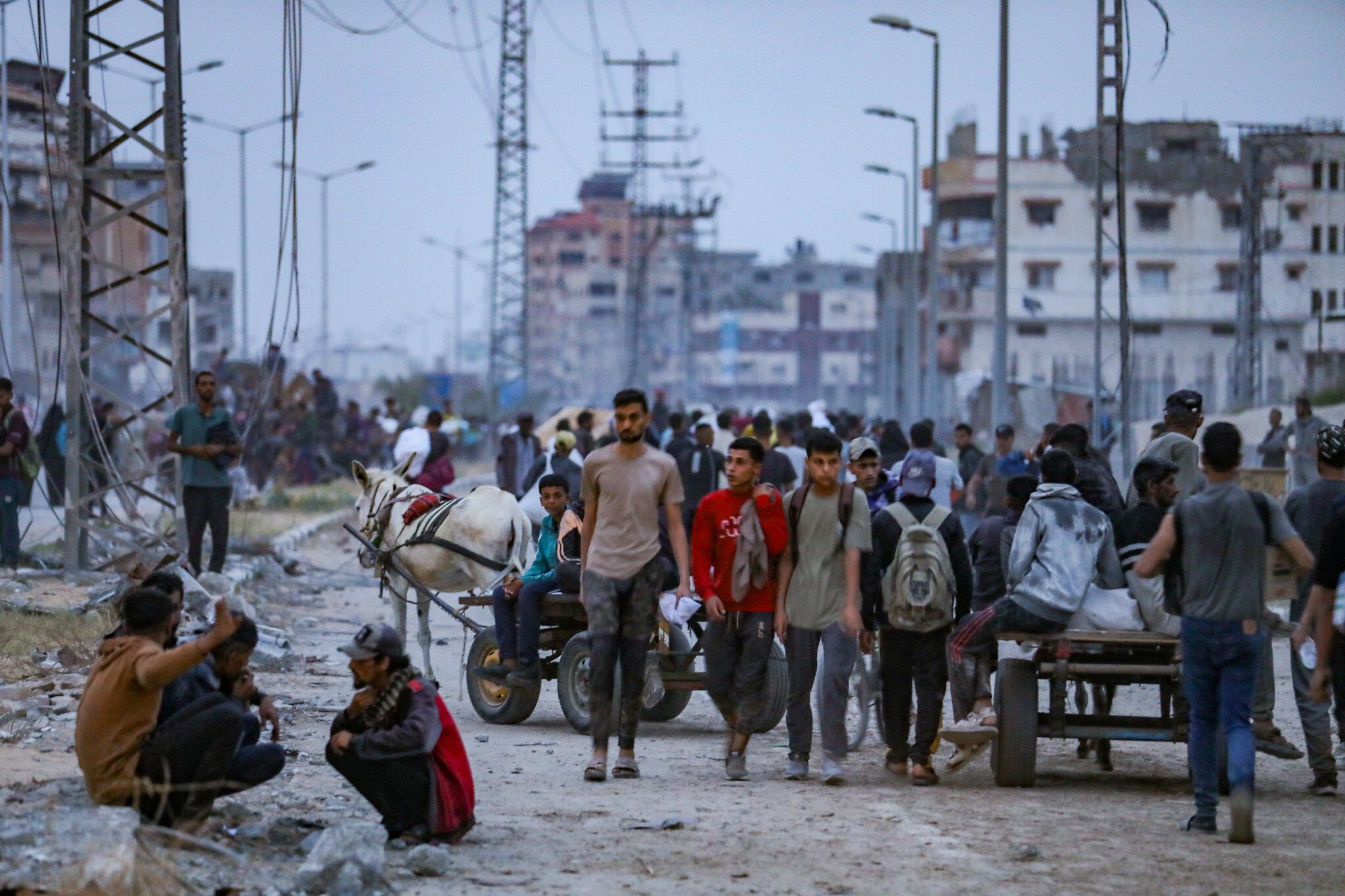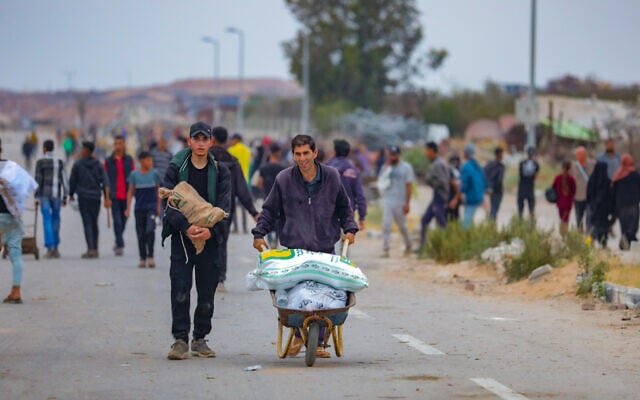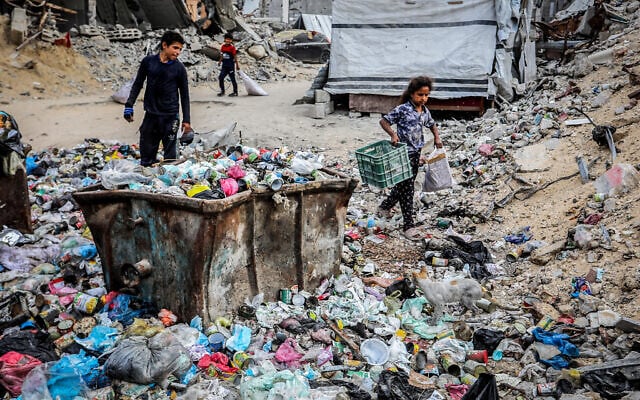



The US- and Israeli-backed Gaza Humanitarian Foundation has been a failure from a humanitarian standpoint of view, the United Nations asserted on Friday.
Israel, which backs GHF, says previous aid distribution methods allowed the Hamas terror group to hold onto control of Gaza and finance its fighting. The UN and major aid groups have refused to cooperate with the foundation over concerns it was designed to cater to Israeli military objectives.
“GHF, I think it’s fair to say, has been, from a principled humanitarian standpoint, a failure,” Jens Laerke, spokesman for the UN humanitarian agency OCHA, told a press briefing in Geneva.
“They are not doing what a humanitarian operation should do, which is providing aid to people where they are, in a safe and secure manner,” she said.
Dozens of Palestinians have been killed while trying to reach GHF distribution points since they began operating in late May, according to Hamas’s civil defense agency. The IDF has confirmed firing warning shots in at least eight instances, but disputed the Hamas death tolls.
“We have the operation ready to roll with food and other supplies ready. We have them in the region, they are pre-cleared by the Israelis,” Laerke said.
“We need the borders open to get in and of course, we need the safety and security and some resemblance of law and order inside Gaza in order to distribute it,” she added.
An officially private effort with opaque funding and backed by Israel, GHF began operations on May 26 after Israel completely cut off supplies into Gaza for more than two months.
GHF claimed Thursday it had distributed nearly 2.6 million meals on Thursday and more than 18.6 million to date.
It also said that on Wednesday night, Hamas operatives had killed eight of its volunteers and staffers, and may have taken others hostage.
The Palestinian Authority said internet and fixed-line communication services were down in Gaza on Thursday following an attack on the territory’s last fiber optic cable, which it blamed on Israel.
“There was and there still is a massive comms blackout,” said Laerke. “If there is no communication, it really is damaging” for aid services, he said.
“There is an active effort to try to fix it, of course, and everybody is looking into that, because things kind of ground to a halt when these things happen.”
The war in Gaza began on October 7, 2023, when some 5,000 Hamas-led terrorists invaded southern Israel from the enclave, killing some 1,200 people and taking 251 hostages.
Israel’s subsequent offensive to topple the group and return the captives has devastated the Strip, displacing almost all of its approximately 2 million residents and creating dire humanitarian conditions.
Terror groups in Gaza continue to hold 55 hostages, including the bodies of at least 33 confirmed dead by the IDF, and 20 who are believed to be alive. There are grave concerns for the well-being of two others, Israeli officials have said.


